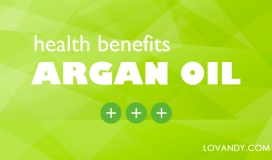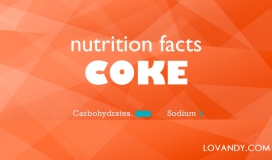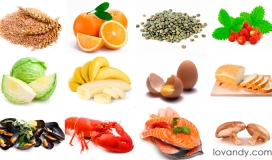Eggs are the best source of vitamins. A breakfast with a pair is always a nice way to get the energy and nutrients you need for a busy day. So, what benefits are we talking about?
Eggs are used as breakfast almost everywhere in the world. There are many delicious dishes made with yolk and white, but nothing can be compared with a simple omelet. This thing is a meal you learn to cook as a child, because there is nothing hard about it. All you need is a couple of eggs and five minutes of your time. Still, the taste is good and the nutrition is high. So, what is it inside of an egg?
Whole Egg Nutrition (White + Yolk)
There are more than ten basic vitamins in a chemical composition of chicken eggs. That are choline, vitamins of group B (B1, B2, B6, B9, B12), A, C, D, E, K, H and PP. In addition, there are many-many elements, such as potassium, calcium, magnesium, zinc, selenium, copper, iron and much more; almost all you can remember from a periodic table.
One egg contains about 130 mg of choline in its composition. Choline, which is part of yolk, regulates the amount of fat and cholesterol in the body. Lecithin, which is also a component of an egg, improves blood flow to the brain. That improves memory and prevents the development of sclerosis.
Even eggshells – washed, peeled and dried – are very useful product for strengthening bones and stimulating hair growth.
In the composition of eggs, cholesterol content reaches 570 mg. It is found only in yolk and is considered the least harmful, because it is balanced with lecithin, which is necessary for nerve cells.
By nutrition, the egg replaces two hundred grams of milk and fifty grams of meat. You should consume it several times a week. Nice thing about eggs, its content is almost completely absorbed by the body (97-99%) and it does not leave any wastes in your intestines.
Although eggs are considered a very nutritious product, you will not gain weight with them. Moreover, they are often included in medical diets. Oatmeal has similar properties.
Egg White Nutrition
As you know, chicken egg consists of white and yolk. White is a supplier of natural easily digestible proteins, which are approximately 1/10 of it. The most beneficial are ovalbumin, ovomucin and lysozyme. The rest 90% is just water.
Whites do not contain fats or cholesterol; therefore, it is an ideal food for those who recovers after viral diseases and colds.
There are also many vitamins in whites: A, B1, B2, B6, D and E. Talking about minerals, it is calcium, zinc, selenium and iron you can find there.
Egg Yolk Nutrition
Yolk contains fat-soluble vitamins, as well as cholesterol. There are also a lot of fat in it, however, that is mostly polyunsaturated fatty acids and monounsaturated fatty acids. There are 80% of all phosphorus found is eggs, as well as most of calcium, magnesium, iron, potassium, sodium and selenium.
Egg yolk contains lecithin, an active antisclerotic that nourishes nervous system and brain tissue. Iron and vitamin E, contained in the yolk, help to fight fatigue and bad mood, prevent the development of cancer and cardiovascular diseases. The combination of vitamin D and phosphorus makes your bones and teeth healthy.
How Much Protein is in One Egg?
Egg is one of the cheapest and, at the same time, quality sources of protein used in sport and bodybuilding. Egg has the highest digestibility and is considered the standard, from which all other proteins are evaluated. Therefore, one egg contains approximately 7 grams of protein, but the quantity is not that important here. The specific content is.
List of the most valuable proteins in eggs:
- Ovalbumin (55%). This protein is found only in chicken eggs. Its function is not fully understood, but it is considered a protein reserve for the development of fetus.
- Ovotransferrin or conalbumin (15%). It has antibacterial properties, especially in combination with lysozyme.
- Lysozyme (3-4%). It helps your body to absorb vitamins in blood and improves the immune system.
There are also some other proteins in eggs, which help your body to grow muscle tissues and take part in cells formation.
How Much Protein is in Egg Whites?
If we take only white, there are almost 12% of proteins. Therefore, it is actually a bit less than in a full egg. The reason is high water concentration, which is all the rest of whites. However, it does not contain any fats or carbs, unlike an egg itself. It means consuming pure whites is good, as you will get only protein.
Does Egg Yolk Contain Protein? Yes, Oddly Enough
Yolk, even though it seems strange, contains more proteins than white does. The amount is 16%. However, there is almost no ovalbumin, which is specifically found in whites. Although, there are some fats and carbs in yolk, making it not that good for those who tries to lose some weight.
How Many Carbs are in an Egg?
The amount of carbohydrates in eggs is significantly low. It is only 0.3 grams per one egg. However, there are many calories. This is due to fatty acids and vitamins content. It is really interesting and somewhat strange how a product with that low carbs still can be so calorized. Such property is unique and makes chicken eggs irreplaceable for many diets.
Let’s Investigate Glycemic Index of Eggs
One egg has the value of glycemic index that equal to 48. It is almost the same for separate yolk or white. This means eggs are in a medium group, making them ok to consume while being on a diet. To compare, some berries have almost the same GI.
How Much Fat Does One Egg Contain?
There are 5 grams of fat in one egg. As we have mentioned, all of it is located in yolk. Therefore, 100 grams of pure yolk is 30% fats.
It is important that mostly those fats are not saturated fatty acids (only 25%). The other 75% is not harmful for weight loss. Its absorption is regulated by choline, meaning you will not gain much pounds eating eggs. This is why it is so popular in many diets as well.
Nutritional Value of an Egg (GI = 48)
| Name of egg nutrition component | Content per 1 egg | Content per 100 g | Percent of daily norm (for 100 g) |
|---|---|---|---|
| Proteins | 6.4 g | 12.8 g | 15% |
| Fats | 5.8 g | 11.6 g | 18% |
| Carbohydrates | 0.35 g | 0.7 g | 0.6% |
| Fiber | – | – | – |
| Vitamin A | 130 µg | 261 µg | 29% |
| Vitamin B1 | 37 µg | 73 µg | 4.8% |
| Vitamin B2 | 221 µg | 442 µg | 24.5% |
| Vitamin B4 (choline) | 126 mg | 252 mg | 50% |
| Vitamin B5 | 0.6 mg | 1.2 mg | 27% |
| Vitamin B6 | 71 µg | 142 µg | 7% |
| Vitamin B9 (folic acid) | 3.5 µg | 7 µg | 2% |
| Vitamin B12 | 0.27 µg | 0.53 µg | 17% |
| Vitamin D | 1.2 µg | 2.3 µg | 23% |
| Vitamin E | 0.3 mg | 0.6 mg | 4% |
| Vitamin H | 10.1 µg | 20.1 µg | 41% |
| Vitamin K | 0.15 µg | 0.3 µg | 0.3% |
| Vitamin PP | 1.8 mg | 3.6 mg | 19% |
| Potassium | 70 mg | 140 mg | 5.5% |
| Calcium | 27 mg | 54 mg | 5.5% |
| Magnesium | 6.5 mg | 13 mg | 3% |
| Sodium | 67.5 mg | 135 mg | 10% |
| Phosphorus | 96.5 mg | 193 mg | 25% |
| Iron | 1.25 mg | 2.5 mg | 14% |
| Iodine | 10.5 µg | 21 µg | 13% |
| Cobalt | 5 µg | 10 µg | 100% |
| Copper | 42 µg | 84 µg | 8% |
| Zinc | 0.56 mg | 1.12 mg | 9% |
| Selenium | 16 µg | 32 µg | 58% |
The Most Valuable Elements and Vitamins in Eggs
Chicken egg is filled with vitamins (you can see the whole list below). Being combined with all those nutrients, they are easily absorbed by your body. That is why eggs are so important for your health (how exactly eggs effect your health – read the article).
Eggs are the source of niacin, which is needed to nourish brain and form sex hormones. Vitamin K is necessary for blood clotting. Choline (we have told about it earlier) improves memory and deduces poisons from liver. Lecithin dissolves plaques in walls of blood vessels.
There is a lot of folic acid in eggs, which ceases the development of congenital malformations for newborns. It also has a high energy value in combination with the proteins. Almost all group B vitamins are stored in eggs. B1, for example, is an indispensable component for the successful operation of nervous system.
Some Information about Egg Beaters’ Nutrition
There are many different egg substitutes for vegans. Some of them contain less protein, some have no fat and some are highly calorized. It is up to you to decide which one fits your diet. Remember to check the full vitamin table for such products.
Usually it doesn’t contain any fats, carbs, cholesterol. It consists of proteins, some sodium, potassium, iron and vitamins.
It is hard to make a powder in the laboratory that would contain so much beneficial substances. If there is not much, consider using something else.
Chicken eggs are really beneficial for your health. The nutrient composition of this product is so unique and full, there is nothing even close to it. Consuming eggs is ok for babies and those who is on a diet. They are a nice thing for gaining muscles and improving immunity. Moreover, it is so easy and fast to boil or fry an egg!














